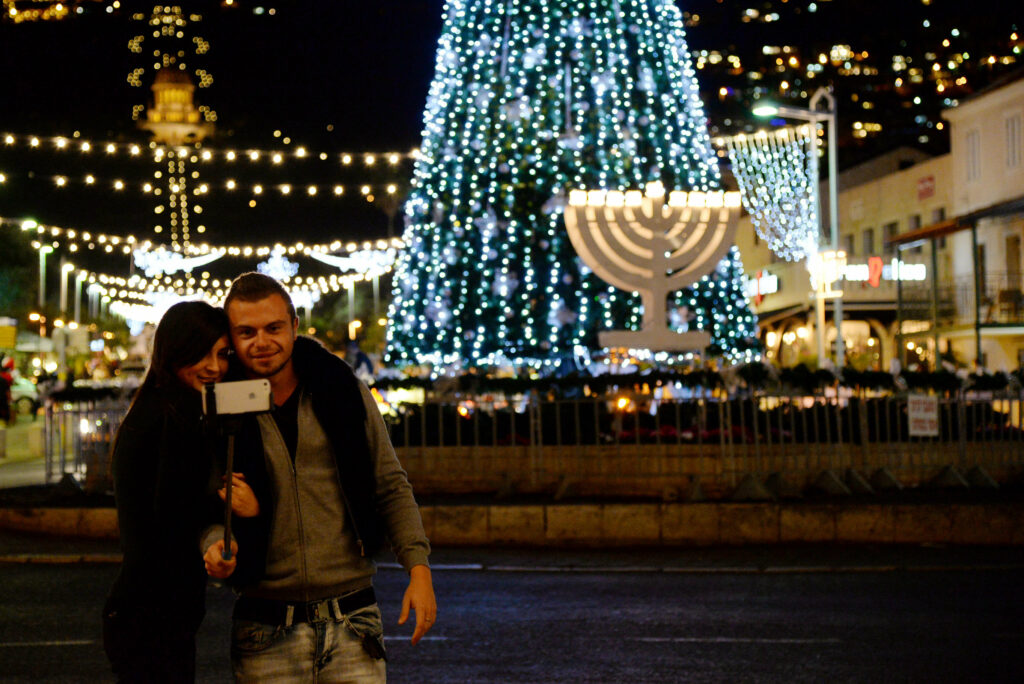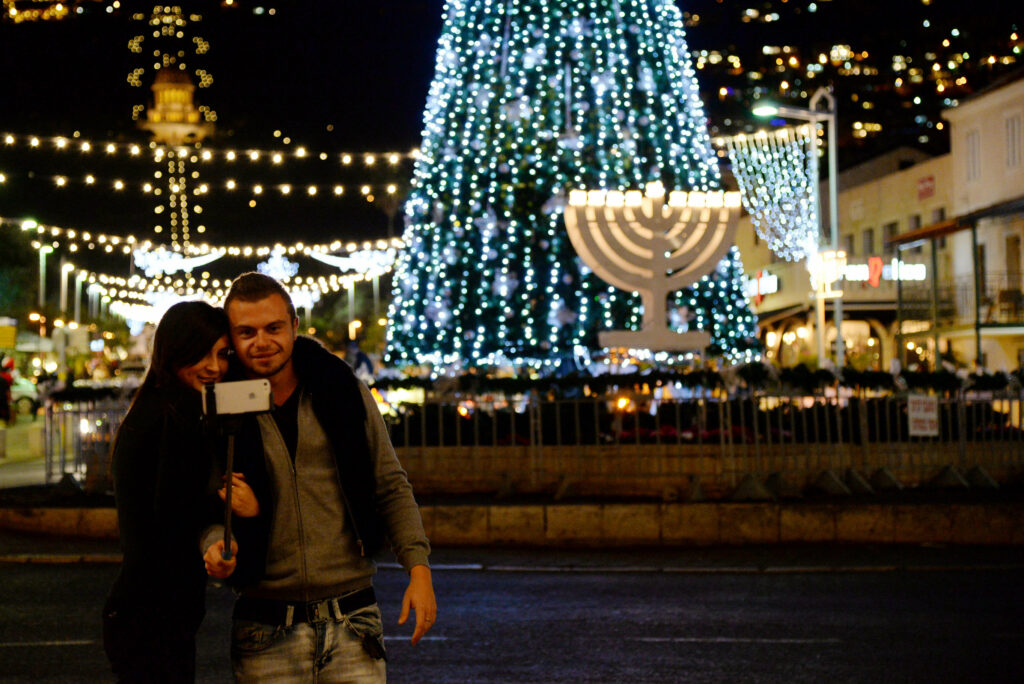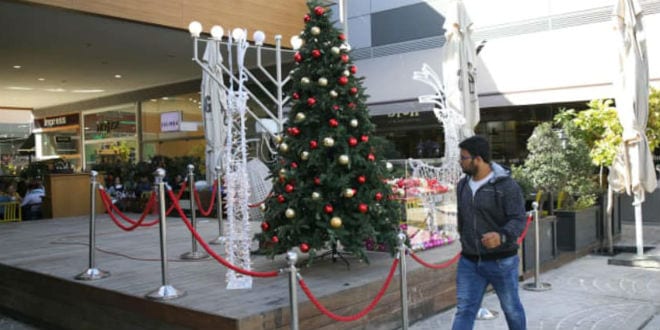
How a Rabbi Came to Appreciate Christmas
While Christians gather in their homes to celebrate Christmas as the most joyous day of the year, the Christian holiday has always been a time of anxiety for Jews, especially Orthodox ones. Yet one Orthodox Rabbi, Tuly Weisz founder of Israel365, has come to appreciate Christmas after moving from America to Israel.
“Living in Israel in this day and age where the prevailing non-Jewish holiday is Ramadan has given me a greater appreciation for Christmas. Unlike Islam which celebrates hate and glorifies death, Christmas celebrates Judeo-Christian values of peace and harmony, good tidings, and brotherly love,” Weisz said.
Although not known to many Christians, Orthodox Jews often refer to Christmas as “Nittel Nacht” (‘the little night’ in Yiddish), observed as a somber and fearful day. First mentioned in Jewish sources in the 18th century, on Nittle Nacht Jews remained hidden in their homes. It is believed that this custom originated in the Middle Ages in Christendom when Jews were often forbidden from appearing in public on Christmas. Christmas Eve frequently marked the beginning of attacks on the Jewish population.

Any Jew walking in the opposite direction of an entire town headed to church risked life and limb by inadvertently insulting the masses. There were even some regions where the Jewish community was told to turn out their lights on Christmas Eve for their own safety lest Christians cast aspersions on those refusing to attend Midnight Mass. The most prominent custom commonly observed on Nittel Nacht is to abstain from Torah study. Jews treasure studying Torah and so to be restricted from it is painful.
Jews in the US are inundated with Christmas messages months in advance. Never do American Jews feel more like a “stranger in a strange land” than in the weeks following Thanksgiving and leading up to Christmas. While many less observant Jews now perceive Christmas as a secular holiday and have adopted the custom of decorating a tree in their house, many Jews consider the Christmas tree to be the ultimate red line separating Jews from assimilation.
Many people are shocked at their first Christmas experience in Israel. In most cities, Christmas decorations are not prominently displayed. This is not due to any anti-Christian attitudes or legislation. In fact, every year the Jerusalem Municipality distributes free Christmas trees to Christian residents. The dearth of Christmas decorations in the Jewish State is simply due to the fact that although growing, Christians represent a very small minority.

This year, even fewer Christmas decorations are being displayed as the Palestinian Authority has mandated that no holiday lights or symbols may be displayed in public.
So while Christmas is less prominent in Israel, many Orthodox Jews are beginning to abandon the custom of Nittel Nacht. Rather than dreading Christmas as a time of Christian oppression, Israel has been the basis of a growing relationship between Jews and Christians. Indeed, we have a common enemy in fundamental Islam. Hamas has made it clear that what it did to Jews on October 7, they fully intend to do to Christians in the US as well.
Rabbi Tuly Weisz, the founder of Israel365, emphasized how much Christmas has changed for him since he came to Israel, “As an American Jew who grew up Orthodox, I wasn’t allowed to say ‘Merry Christmas’ and always referred to the day as ‘Nittel Nacht,” Rabbi Weisz said. Weisz previously wrote about his perspective on Christmas on Israel365 News.
“Ever since moving to Israel, I now see how Christmas contains great significance for our Christian Zionist allies. Not only that, but Jews have made many important contributions to the celebration of Christmas in America.”
Weisz noted that many, if not most of the most beloved Christmas songs were composed by Jews around the time of the Holocaust as a tribute to the country that took them in and protected them.
“From its inception, America has been perceived as the ‘Promised Land’, Rabbi Weisz said. “While this was a blessing for so many and it saved many European Jews, it led to a negative theological development among Jews. Reform Jews rejected Israel, they adopted the US as their own ‘messianic’ utopia.
Rabbi Weisz cited the Pittsburgh Platform adopted by the Reform movement in 1885. Reform rejected Jewish nationalism and contained an explicit rejection of Zionism.
“Reform embraced Pittsburgh and at the same time rejected Petach Tikvah,” the Israeli town founded around the same time Weisz said. “The most creative American Jews of the 19th century abandoned the synagogue for Saks Fifth Avenue. Instead of Kibbutzim, they established Bloomingdales and Macys.”
“These American Jews chased the American dream in pursuit of a subconscious messianic utopianism that was deeply ingrained in the Jewish psyche. These optimistic and creative Jewish entrepreneurs made themselves at home in their newly adopted promised land. Barred from entering many established industries, American Jews went west to California and played a pivotal role in founding the movie industry in Hollywood,” Rabbi Weisz said.
America was founded upon Judeo-Christian values. It was a majority Christian nation that sheltered and protected its Jews and, for the first time, allowed them to flourish alongside the Christian majority.
“Christmas in the US is no longer the source of dread and worry,” Rabbi Weisz said. “I no longer refer to it as Nittel Nacht. Christmas as celebrated in America is built on Jewish themes presented in Christian garb. Living in Israel in this day and age where the prevailing non-Jewish holiday is Ramadan has given me a greater appreciation for Christmas. Unlike Islam which celebrates hate and glorifies death, Christmas celebrates Judeo-Christian values of peace and harmony, good tidings, and brotherly love,” Weisz said.
The post How a Rabbi Came to Appreciate Christmas appeared first on Israel365 News.
Israel in the News